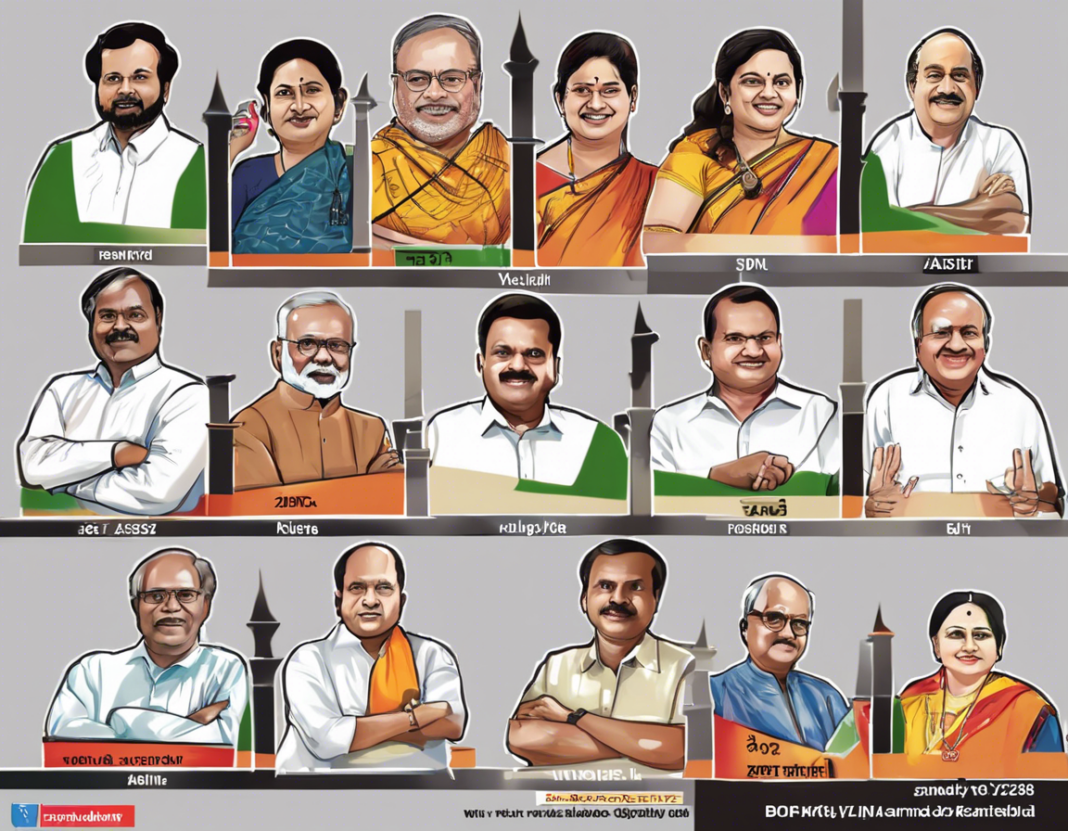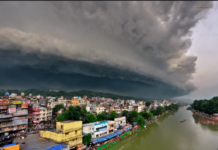The Karnataka Assembly Election 2023 is anticipated to be a significant event in Indian politics, with the state’s political landscape poised for a potential shift. As the countdown to the election begins, key players, electoral strategies, and issues at stake are coming to the forefront. In this blog post, we will delve into the intricacies of the Karnataka Assembly Election 2023, exploring various aspects such as major political parties, key candidates, crucial issues, and possible outcomes.
Political Landscape in Karnataka:
Karnataka has been a diverse political battleground, with the ruling Bharatiya Janata Party (BJP), the Indian National Congress (INC), and the Janata Dal (Secular) (JDS) historically dominating the state’s political scene. The 2023 election is set to witness fierce competition among these parties, as well as potential new entrants and alliances.
Major Political Parties:
-
Bharatiya Janata Party (BJP): The BJP has been a dominant force in Karnataka, having secured a majority in the previous assembly election. The party will aim to retain power by focusing on development initiatives and its track record in governance.
-
Indian National Congress (INC): The INC, aiming for a comeback, will likely highlight issues such as unemployment, farmer distress, and social welfare programs in its election campaign.
-
Janata Dal (Secular) (JDS): The JDS, led by former Prime Minister H.D. Deve Gowda and former Chief Minister H.D. Kumaraswamy, will play a crucial role in determining the electoral dynamics, especially in key constituencies.
Key Candidates:
-
B.S. Yediyurappa (BJP): The incumbent Chief Minister will be a pivotal figure in the BJP’s campaign, with his leadership and administrative decisions likely to influence voter sentiment.
-
Siddaramaiah (INC): The former Chief Minister and senior INC leader will spearhead the party’s efforts to regain power, leveraging his mass appeal and political acumen.
-
H.D. Kumaraswamy (JDS): As a prominent face of the JDS, Kumaraswamy’s role in coalition-building and grassroots mobilization will be crucial in the election dynamics.
Crucial Issues:
Several key issues are expected to dominate the electoral discourse in Karnataka, including:
– Development and Infrastructure: The state’s progress in areas such as road connectivity, industrial growth, and urban infrastructure will be a focal point for all parties.
-
Agricultural Distress: Issues related to farmer welfare, irrigation facilities, crop insurance, and sustainable agriculture practices are likely to resonate with rural voters.
-
Employment and Education: Unemployment rates, skill development initiatives, and the quality of education and healthcare services will be critical factors influencing voter preferences.
Electoral Strategies:
-
Digital Campaigning: With the increasing penetration of digital media, political parties are expected to ramp up their online campaigning through social media, podcasts, and targeted advertisements.
-
Ground Mobilization: Door-to-door campaigns, public rallies, and mass contact programs will continue to be vital in reaching out to voters across urban and rural constituencies.
Possible Outcomes:
The Karnataka Assembly Election 2023 is poised to deliver several potential outcomes, including:
– BJP Retaining Power: If the BJP successfully consolidates its voter base and addresses public grievances, it could retain power with a clear majority.
-
Coalition Government: In the event of a fragmented mandate, a coalition government involving multiple parties, possibly including the JDS and regional players, could emerge.
-
INC Making a Comeback: With strategic alliances, an impactful manifesto, and strong leadership, the INC may stage a comeback and form the government.
Frequently Asked Questions (FAQs):
- When is the Karnataka Assembly Election 2023 scheduled to take place?
-
The exact date for the Karnataka Assembly Election 2023 is yet to be announced, but it is expected to be held in the first half of the year.
-
What are the eligibility criteria to vote in the Karnataka Assembly Election?
-
To be eligible to vote, one must be a citizen of India, over 18 years of age, and have a valid voter ID card.
-
How many seats are there in the Karnataka Legislative Assembly?
-
The Karnataka Legislative Assembly has a total of 224 seats, with each constituency electing one representative.
-
Can voters check their names on the electoral roll before the election?
-
Yes, voters can check their names on the electoral roll either online through the state election commission website or offline at designated centers.
-
What role do exit polls play in predicting election outcomes?
-
Exit polls provide an estimation of the probable results based on voter surveys conducted after they have cast their votes. While not definitive, they offer insights into potential trends.
-
Are there any restrictions on campaigning during the election period?
-
Campaigning regulations during the election period include a ban on certain activities such as rallies, advertisements, and canvassing within a specified distance from polling booths.
-
How are electronic voting machines (EVMs) used in the election process?
-
EVMs are used for casting votes electronically, providing a secure and efficient means of conducting elections while ensuring transparency and accuracy in the results.
-
What is the significance of voter turnout in the electoral process?
-
Voter turnout indicates the level of public participation in the democratic process and plays a crucial role in determining the legitimacy and representativeness of the elected government.
-
How are postal ballots handled in the Karnataka Assembly Election?
-
Postal ballots are provided to specific categories of voters such as armed forces personnel, government officials on duty, and those unable to vote in person, allowing them to cast their votes by mail.
-
What are the procedures for filing complaints related to the election process?
- Voters can report any grievances or irregularities in the election process to the Election Commission of India through designated helplines, online portals, or complaint centers.
The Karnataka Assembly Election 2023 is poised to be a keenly watched event with far-reaching implications for the state’s political trajectory. As the countdown begins, the electoral landscape is set to evolve rapidly, as parties gear up for an intense battle to capture power and govern Karnataka for the next term.










